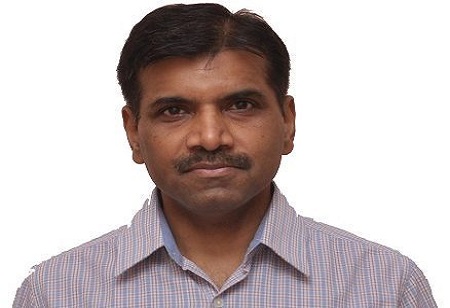 Magazine
Magazine

On July 18, 2023, the curtain raiser of the Global Maritime India Summit (GIMS), 2023 was held in Mumbai. The purpose of the event was to set the tone for unlocking the potential for new investment opportunities as well as knowledge and technology collaborations to improve trade cooperation and advance Ease of Doing Business (EODB).
During the event, Rajesh Kumar Sinha, Additional Secretary, Ministry of Ports, Shipping and Waterways shared his views on what is in the offing for the maritime sector and what steps need to be taken for its further development. Following are the excerpts from his address.
Today, India is home to 12 major ports, over 200 other ports, 30 shipyards, and a comprehensive hub of diverse maritime service providers. Being a part of the world's busiest trade route elevates the economic prominence of India's maritime sector. While preparing for Marine Environment Protection Committee (MEPC), I interacted with the stakeholders, various ministries, the shipping representatives, the ports representatives, the environment and Forest Ministry, the Ministry of Commerce, and other Ministries as well. And what I learned from those interactions is that we need to set up a narrative at various forums, not just in India but in other countries as well. One point that was very briefly mentioned was the strengths of our shipping sector and how it gets reflected at international forums. It is not about how you present but what you present at the international forums.
The strength of our country, its potential, and the vision it has for this sector are what you present in the MEPC. Although it will take time to make the wheels turn nevertheless we keep trying. We have set many goals jointly with you on many fronts. However, we will be looking at only two or three of these.
Upskilling the seafarers
The first on the list is seafarers. India supplies about 12 percent of the global seafaring community. We need to upskill our seafarers in various categories which include technology and the climatic conditions in which they have to work.
This is one area that we have been focusing on. I have also requested one or two other countries which are very fast migrating to newer technologies to train our seafarers. The other scope is we explore new maritime routes or we populate our seafarers in existing routes.
However, the numbers required to employ are different since automation makes the number also go down. The more automated the ship's vessels become, the number of employment opportunities will go down. Therefore, it is highly crucial to get seafarers employed sooner, help them adapt to the new technology, and get themselves upskilled.
Exploring new avenues
The other important factor which I stated was about exploring new routes, new maritime corridors, new areas, and new types of shipbuilding.
There are requests for building new types of large sizes of ships in India for foreign countries.
Therefore, our ship-building capacity should also go up substantially. There has to be some new thinking on this. There are shipyards that are smaller, and medium size and should be having some kind of aggregation policy where you aggregate the capacities of these shipyards as well. We have a shipbuilding financial assistance scheme/policy of the government of India. It is a fantastic policy but needs to be used rightly. The larger the ship, the more the capital invested, and the more this policy is supportive of such shipbuilding. So we need to think along those lines as well. There are requests that we explore new routes of trade, new maritime corridors, and also different types of training for seafarers; so those have to be combined as well.
Green shipbuilding
Another important factor is the country and the ministry's asset monetization catalog. The other area that was touched upon was green shipbuilding. We have one PSU called Cochin Shipyard Limited that is already making a number of hybrid vessels and it is now making one vessel which is green; it is a pilot project. Hence, this capacity has to increase substantially. Their order books are full mostly from European countries, the Nordic countries with some Western European countries, and also some other parts of the Mediterranean area. This is another opportunity that is actually a beacon of hope for this ship-building industry of India.
We use cookies to ensure you get the best experience on our website. Read more...